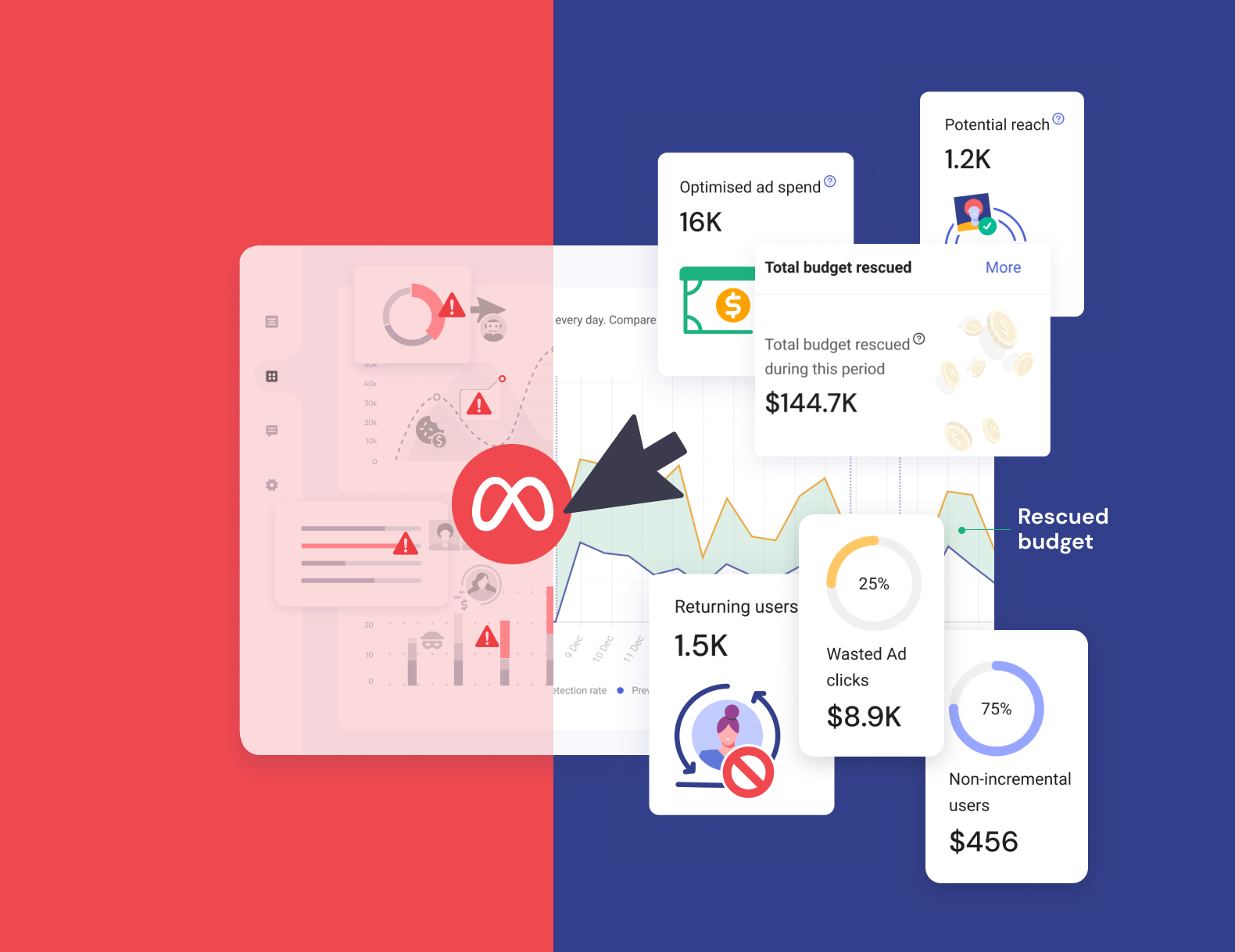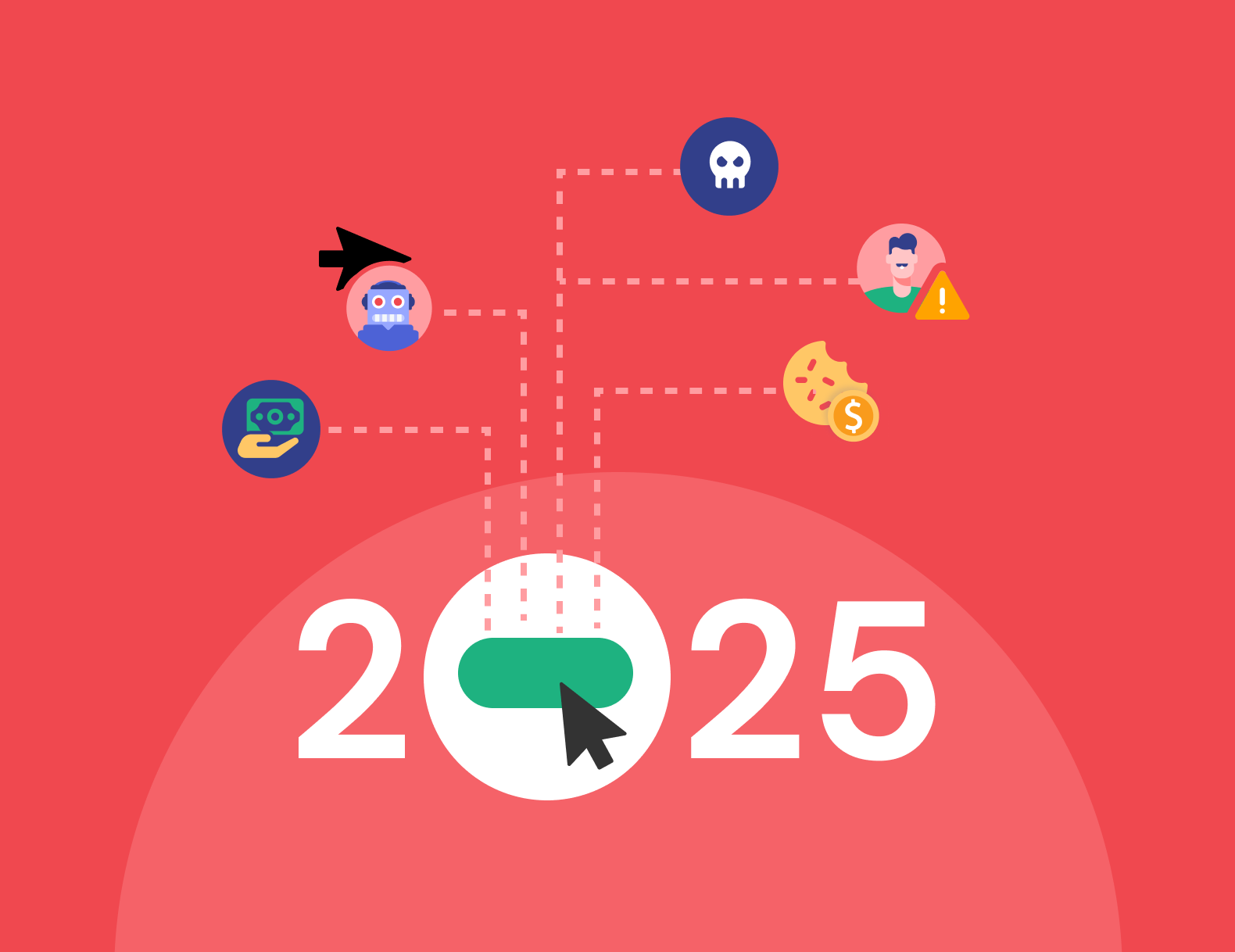Bots, Malicious Traffic and Malware: A Threat To Sportsbooks?

It’s a boom time for the online sports betting market, with predictions from Statista suggesting that by 2029 the number of customers in the market will top a staggering 182m globally. It’s no surprise then, that competition between sportsbooks for customers’ attention is fierce - and that new users don’t come cheap.
Key Sports Betting Industry Statistics
Source: TrafficGuard / GamblingInsider
As sportsbooks’ customer acquisition strategies become increasingly sophisticated, so too do the strategies of the fraudsters and bad actors looking to get in on a piece of the action.
Luckily for you, the technology we employ at TrafficGuard to stay one step ahead of them is pretty sophisticated too, offering industry-leading invalid traffic detection and ad fraud prevention solutions.
The launch of our new client dashboard - which you can learn more about here - feels like an appropriate time to take a look at some of the different types of bot traffic and malware that might be impacting the effectiveness of your ads.
How much could invalid traffic and ad fraud be costing you?
We recently ran a deep-dive audit for a major global sports betting company which uncovered some pretty shocking truths about the scale of the malicious traffic lurking in their ad campaigns; of the $750,000 being spent on Google Ads over the two-week audit period, more than $100,000 - 14.3% - was being wasted on traffic that wouldn’t ever convert, or worse, was an active threat to budgets.
We’ll break that down further below and explain the different types of invalid traffic that might be uncovered by a TrafficGuard audit of your campaigns.
Hold tight, it’s about to get technical…
Types of Invalid Traffic and Their Budget Implications
Known host IP addresses: budget implication = $77,000 or 10.3%
Basically, an IP address is flagged up as being associated with a host server that is storing its data either in a physical or cloud server. This type of expensive (we’re talking tens of thousands of dollars per month) large-scale storage is way beyond the means of a regular retail customer, which is an instant red flag for us, and suggests that they are being used by bots and bad actors for nefarious purposes such as ID/credit card fraud, and DDoS attacks.
In short: the type of traffic you definitely don’t want to be spending your hard-earned on.
In the case of our customer, these were impacting their campaigns to the tune of $77,000.
Known residential proxy IP: budget implication = $29,000 or 3%
Residential IP proxies - which act as a middleman between a user’s device and the internet - are used by fraudsters as anonymisers; helping them to appear legitimate, and allowing bot traffic to go unnoticed among real users.
The cost and complication involved in using a residential proxy means we can be confident that traffic identified from these sources has bad intentions: if a genuine user wanted to hide their identity, they’d use a standard VPN instead.
TrafficGuard’s ability to detect and respond to this traffic in real-time identified $29,000 in this customer’s budget that could be reinvested in targeting genuine users.
Bots: budget implication = $1,200 or 0.1%
A high percentage of non-human web traffic is made up of bots.
While some are harmless, there are many malicious bots out there whose sole purpose is to commit ad fraud - you’ve probably heard us mention these before (we don’t like them).
TrafficGuard manages an exclusion list of bot traffic in real-time, to ensure that no matter how sophisticated and widespread the bots get, they still won’t stand a chance of getting close to your precious campaign budgets.
Manipulation of global cookie ID and rate global cookie ID: budget implication = $500 or 0.06%
This is when information is manipulated or falsified prior to the user activity by inserting, deleting or misattributing cookies or when a global cookie ID has an abnormally high level of ad engagement across multiple campaigns. No user should be able to manipulate their global cookie ID, and nor should any legitimate user want to.
Our systems will monitor global cookie interactions with your ad campaigns and flag suspicious activity, such as unusually high interactions across campaigns. The global cookie is a network-wide cookie TrafficGuard uses as one of the features of identity resolution; it helps us to detect this type of invalid traffic, manage exclusion lists in real-time, and - you’ve guessed it by now - reinvest your ad spend towards your genuine users.
Other IVT
Along with the bots, malware, and malicious traffic types outlined above, sportsbooks are a prime target for other types of invalid traffic. This could take the form of non-incremental engagement - or repeated clicks from individual users such as customers using brand campaigns to just re-login.
It could be innocent in intent; a genuine user regularly clicking on your ads to navigate to your website for example, or it could be more sinister such as a competitor looking to waste your ad budgets, but either way, it’s going to cost you.
No matter the threat level, TrafficGuard’s in-depth traffic insights ensure you have early warning on any suspicious activity.
Why does this matter for Sportsbooks?
- High CAC makes sportsbooks a prime target for fraudsters
- Invalid traffic can skew performance metrics, resulting in misallocation of marketing budgets
- Malicious bots can exploit promotions
- Effective ad fraud prevention is crucial for sportsbooks
Forewarned is forearmed
A TrafficGuard audit will give you the foundations to ensure you have complete visibility across the traffic interacting with your Google campaigns and will enable you to identify and prevent fraudulent activity before it has a chance to become a problem.
Learn more about what it could do for you.
Next Steps:
- Audit your campaigns: Regularly audit your ad campaigns for invalid traffic
- Implement real-time protection: Utilise effective ad fraud detection systems like TrafficGuard
- Optimise ad spend: Redirect wasted budget towards acquiring and retaining genuine users
- Stay informed: Stay up to date with the latest ad fraud techniques and insights from TrafficGuard
Further reading:
- How valid is your traffic: Invalid traffic and its impact on US sportsbooks
- Bots and Bonus Abuse in iGaming: Protecting Sportsbooks from Evolving Threat Methods
Get started - it's free
You can set up a TrafficGuard account in minutes, so we’ll be protecting your campaigns before you can say ‘sky-high ROI’.
Subscribe
Subscribe now to get all the latest news and insights on digital advertising, machine learning and ad fraud.








